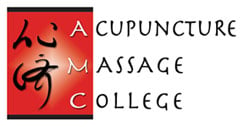A test that examines the brain changes that occur after onset of Alzheimer’s disease has resulted in data that supports the theory that education can slow the development of the dementia and cognitive decline that are the basic characteristics of the disorder.
Scientists at the Alzheimer’s Disease Research Center at Washington University School of Medicine in St. Louis found that several study participants who had developed the brain plaques associated with Alzheimer’s disease nonetheless received high scores on cognitive ability tests.
Participants who received high cognitive score tests spent more years in school. "The good news is that greater education may allow people to harbor amyloid plaques and other brain pathology linked to Alzheimer's disease without experiencing decline of their cognitive abilities," says first author Catherine Roe, Ph.D., research instructor in neurology.
Based on study findings, Roe utilized participants’ education levels to define a theoretical quality called ‘cognitive reserve,’ an intellectual resource characterized by improved abilities in thinking, learning and memory that result from regularly challenging and making use of the brain.
Previously, neurologists have speculated about this quality and its ability to counteract the development of Alzheimer’s disease. The disease presently cannot be diagnosed, other than by postmortem brain examination.
However, Washington University scientists have produced findings that Pittsburgh Compound B (PIB), an imaging agent for positron emission tomography scans, can reveal imagery indicating the presence of amyloid plaques, a significant brain change that is believed to be associated with the onset of Alzheimer’s or directly cause the onset of the disorder.
"This technique has been used before to analyze patients with dementia and their education levels, but our study is among the first, if not the first, to include both patients with Alzheimer's-type dementia and nondemented participants," says Roe.
The participants took several cognitive ability tests in addition to brain scanning with PIB. Additionally, they ranked their education experience: High-school degree or less, college experience up to an undergraduate degree and graduate schooling.
Those whose brains showed little evidence of plaque buildup scored high on all tests, as expected. However, participants who had developed brain plaque buildup who had done postgraduate work still scored well, compared to those who had developed plaque buildup and had less educational experience. Those with higher educational levels who had developed Alzheimer’s had not become demented and their cognitive abilities had not declined.
Follow-up studies are being planned by Roe and her colleagues to pinpoint other potential indicators of increased cognitive reserve, such as social and intellectual activities, professional duties that require regular mental challenges and hobbies.
For information about Acupuncture & Massage College’s Oriental Medicine and Massage Therapy programs call Joe Calareso, Admissions Director, at (305) 595-9500.

 (305) 595-9500
(305) 595-9500






